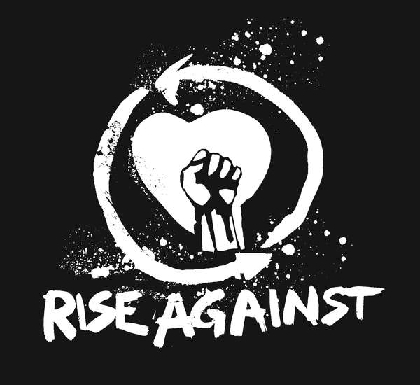With popular uprisings turfing out rulers in Tunisia, Egypt and perhaps elsewhere in the Arab world, a lot of analysts have focused on fears of ''contagion' ' in other regions, notably on China's censorship of news reports about the protest wave in the Middle East.
Yet the Middle East event that might have the most far-reaching effect is not the awakening of the Arab ''street'' against authoritarian rulers, but the vote in a United Nations supervised referendum a month earlier.
The largely African people in the south of Sudan voted overwhelming to secede from their Arab-dominated country and form a new nation - a result accepted by the Khartoum government and its main foreign backers, including China.
This has followed the declaration of independence from Serbia by Kosovo in 2008 that was accepted by most of the world and approved by the International Court of Justice, and Russia's unilateral recognition of Georgia's South Ossetia and Abkhazia as sovereign states soon afterwards in retaliation. It has left respect for the ''territorial integrity'' of states and post-colonial boundaries somewhat tattered.
Already the example is being applied to an intractable issue right on Australia's border and forming the touchiest part of what many see as our most important foreign relationship - the question of West Papua, the western half of New Guinea now part of Indonesia.
As Akihisa Matsuno, a professor at Osaka University, pointed out this week in a conference at Sydney University's Institute of Peace and Conflict Studies, South Sudan and Kosovo take West Papua out of the usual context of debate about the rights and wrongs of its decolonisation from Dutch rule in 1962 and ''act of free choice'' under Indonesian control in 1969.
Kosovo's independence was a case of ''remedial secession'': no states claimed the Kosovars had a right to self-determination, there was just no prospect of its peaceful reintegration back into Serbia or the rump Yugoslavia. Protection of people in Kosovo had more weight than Serbia's territorial integrity.
Sudan became independent in 1956 from British rule, but has been in civil war most of the time since, with a 2005 peace agreement finally conceding a referendum. This suggests lack of integration between territories ruled by the same colonial power can justify a separate state, Matsuno said. ''This means that colonial boundaries are not as absolute as usually assumed.''
Indonesia itself went down this path in 1999 by insisting, for its domestic political reasons, that East Timor's vote in 1999 was not a delayed act of self-determination that should have been taken just after the Portuguese left in 1975, but a ''popular consultation' ' with the result put into effect by Indonesia's legislature. This amounted to conceding a right of secession to its provinces, Matsuno said.
West Papua's act of free choice was seen as a farce from the beginning. As the historians Pieter Drooglever in Holland and John Saltford in Britain have documented, monitors were kicked out of the territory by the Indonesians in the seven-year interval between the Dutch departure and the ''act'' - which was a unanimous public vote by an assembly of 1022 handpicked, bribed and intimidated Papuans in favour of integration with Indonesia.
Revolt has simmered and broken out sporadically ever since. Canberra's relations with Jakarta went into crisis in 2006 when 43 Papuan independence activists and family members crossed the Torres Strait by motor canoe and requested political asylum.
Richard Chauvel, an Indonesia scholar at Melbourne's Victoria University, told the conference Jakarta feels Papuan independence is not seen as the threat it was a decade ago when a ''Papuan spring'' of breakaway sentiment and protest followed East Timor's departure. The territory has been broken into two provinces so far, and numerous district governments, Papuan separatists fragmented, and no state bar Vanuatu is questioning Indonesian sovereignty (though the US Congress last September held its first committee hearing on West Papua).
Yet Chauvel says West Papua has become an ''Achilles' heel'' for a democratising Indonesia over the last 10 years. ''Papua is Indonesia's last and most intractable regional conflict,'' he said. ''Papua has become a battleground between a 'new' and an 'old' Indonesia. The 'old' Indonesia considers that its soldiers torturing fellow Indonesians in a most barbaric manner is an 'incident'. The 'new' Indonesia aspires to the ideals of its founders in working towards becoming a progressive, outward-looking, cosmopolitan, multi-ethnic and multi-faith society.''
President Susilo Bambang Yudhoyono called the recently reported torture cases ''incidents' ' by low-level soldiers, not the result of high-up instructions. Chauvel says he is probably correct: ''A more likely explanation is that instructions were not necessary. These acts reflected a deeply ingrained institutional culture of violence in the way members of the security forces interact with Papuans.''
Matsuno argues that South Sudan makes Indonesia's post-colonial claim to West Papua more shaky, since it too had racial, religious and other differences to the rest of the country and had been administered separately within the former Netherlands East Indies. A ''more moral question'' behind self-determination is coming to the fore, he said, the factor of ''failure'' in governing.
The Japanese scholar sees echoes of East Timor in the late 1980s, when even foreign policy ''realists'' started recognising the failure of Indonesian rule on the ground: serious human rights abuses, foreign media shut out, migrants flooding in, local leaders turning away from government, a younger generation educated in the Indonesian system refusing to identify themselves as Indonesians.
''These young people were increasingly vocal and continued to expose the 'unsustainability' of the system,'' Matsuno said. ''Indeed the unsustainability of the situation in West Papua seems to be a truth. Only it takes some more time for the world to realise the truth.''
No one expects any outside power to intervene. But as we are seeing in the Arab despotisms, the new media make it harder and harder to draw a veil over suppression. In the Indonesia that is opening up, the exception of West Papua will become more glaring.

Comments